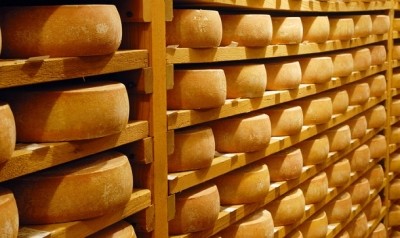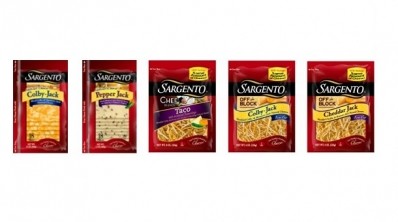DuPont new cheese cultures ensure consistency and safety in soft-ripened cheese

Developed at DuPont’s soft-ripened cheese production facilities in France, the new CHOOZIT brand cheese cultures, CHOOZIT ST 20 and CHOOZIT PC FAST, are designed to optimize production and produce soft-ripened cheese consistently.
Maintaining consistency in soft-ripened cheese
“Consumers prefer soft-ripened cheese with a nice and stable white surface and soft texture,” explains Annie Mornet, global product leader, cheese cultures.
“While cheese manufacturers want to satisfy these consumer desires throughout a cheese’s shelf life, they also want to maintain a high throughput level. These objectives don’t always align.”
Controlling acidification and rind formation times are essential in making consistent soft-ripened cheese.
The company says the new products address these challenges.
CHOOZIT PC FAST cultures offer more rapid development of stable white rind, enabling packaging to begin earlier, and CHOOZIT ST 20 cultures offer direct vat inoculation in the milk with an early and controlled acidification to achieve the desired cheese texture.
Contamination prevention
Soft-ripened cheese varieties such as Camembert and Limburger are characterized by bloomy rinds that are particularly susceptible to bacteria contamination due to a high moisture content that provides the appropriate growth conditions for Listeria.
According to US National Library of Medicine National Institutes of Health, cheese is considered to be one of the foods most frequently contaminated with Listeria monocytogenes. About 30% of the major food related outbreaks of L. monocytogenes can be traced back to contaminated cheeses. The incidence of Listeria in cheese was found to be in a range from 1% and 22%, with an average contamination frequency of 7.4% with soft-ripened cheeses more frequently contaminated than semi-hard or hard cheeses.
“There’s a critical need for Listeria control of high-moisture surface-ripened style cheeses,” Tim Stubbs, VP of product research at Dairy Management Inc. told DairyReporter.
“When you get near neutral pH in dairy products, Listeria is happy to grow.”
DuPont’s new cheese cultures aim to ensure that this type of contamination does not occur.
“Another benefit of CHOOZIT ST 20 cultures is a significant reduction in the risk of phage issues,” said Mornet.
“This helps our customers maintain consistent cheese production times and optimize yield, while maintaining a high standard of cheese quality and food safety.”








